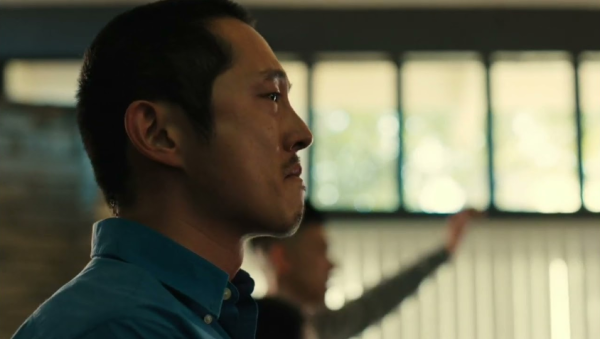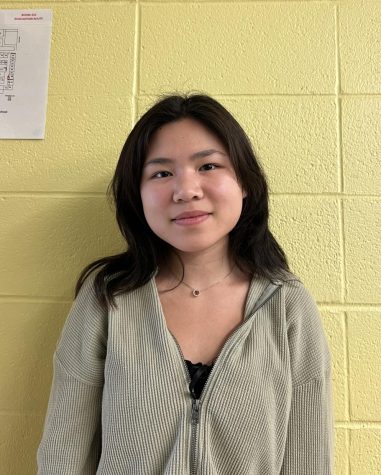(Disclaimer: this piece contains mild spoilers for the Netflix series, Beef)
With the A24-produced Netflix series Beef sweeping recent awards shows’ prizes (such as the Critics’ Choice Television Award for Best Limited Series), it is clear that this heavily Asian-influenced series will make the history books. Ali Wong is the first Asian American to win a Golden Globe for Best Actress in a Limited Series, and Steven Yeun, her co-star, also won Best Actor in a Limited Series. In addition to winning copious awards, Beef is a trailblazer for Asian American representation in a way that one might not notice at first glance.
Instead of depicting Asian Americans as monolithically hard-working, intelligent, and obedient, Beef’s characters break this model minority mold. The Seattle Times wrote, “In it, you have characters who are messy, flawed, petty, manipulative and vindictive. Even more illuminating and unusual, you see a wide range of socio-economic and ethnic groups portrayed within an Asian American context.”
The Korean-American creator of the show, Lee Sung Jin, incorporated diverse Asian-American aspects into the series. One of these aspects is the tight-knit Asian-American (specifically Korean) church community. In Episode 3 of Beef, the troubled main character, Danny, is overwhelmed with pent-up emotions during a performance of “O Come to the Altar” by Elevation Worship at a Californian Korean church where he seeks solace. This moving and distinguished scene touched the hearts of many viewers, especially those who had similar religious communities in their hometowns, for churches were places where Asian Americans could release bottled-up emotions.
According to a Slate article, “Regardless of religious beliefs, every Korean immigrant starts life in America at the church. It’s the one place where they know they can find community and people like them in this strange and foreign world. For Korean Americans, church is more than just a place of worship. It’s a place to conduct business, market, network, socialize, and find a spouse.”

An NBC article interviewed Michelle Park, a Korean American from the Philadelphia suburbs who was raised in a Korean church. “I’ve never seen anybody portray [Korean churches] so perfectly,” Park said.
“Growing up, I always felt alienated from the Korean-American community because I didn’t attend church,” author Stephanie K. Kim wrote on X (formerly known as Twitter). “Watching Beef is like reliving that alienation.”
Faith communities such as the church depicted in Beef are linked to Asian-American churchgoers’ sense of belonging, cultural religious history, and societal values. Whether they be positive memories or negative ones, the powerful church scene is sure to move audiences with similar backgrounds.
In addition, one of the memorable quotes from the insightful series is Danny’s line, “Western therapy doesn’t work on Eastern minds.” This line ties to the strong and recurring theme of stigmatized mental health in Asian-American culture. According to McLean Hospital, “Many Asian Americans see themselves as part of a group that seamlessly integrated into their new society. They characterize themselves as intelligent, industrious, and fully in charge of their lives. For many, admitting to ‘weakness’ would be letting down the entire community.”
Both of the leads, Amy and Danny, suffer from depression, leading to their prolonged road-rage feud as an unhealthy outlet. Amy’s husband, George, attempts to help his wife with her mental illness that partially tainted their marriage throughout the show. George’s actor, Joseph Lee, shares his experience with Inverse. “We’ve been initiated in society to not be vulnerable and to not show weakness,” Lee said, “and we’re breaking down those constructs of what it even means to be an Asian man or a man in general.”
Additionally, Beef acknowledges generational trauma, a theme in many Asian-American TV shows and films, such as Everything, Everywhere, All at Once, and Tigertail. Generational trauma is especially different and existent for Asian Americans, as many factors go into it: cultural values, immigration, and the “American dream.” In Beef’s episode 3, the Amy shares with her therapist, “I think growing up with my parents taught me to repress all my feelings.”
Another intense topic Beef touched upon was suicidal ideation. According to the HHS, “suicide was the leading cause of death for Asian/Pacific Islanders, ages 15 to 24, in 2019.” Moreover, the National Latino and Asian American Study reported that while “18% of the general U.S. population sought mental health services and resources, only 8.6% of Asian Americans did so.” Beef reflects these statistics through Danny’s continuous purchases and returns of hibachi grills that he attempted to use for suicide. Danny never follows through with his attempts and never confides in his loved ones or seeks professional help, but he utilizes church as an outlet. The show is a volatile roller coaster of emotions, as Danny’s life temporarily improves after reconnecting with the Korean church. But the sharp downhills that both Amy and Danny face throughout the season go to show how overpowering mental illnesses can be.
While the plot is undoubtedly on the extreme side, involving art robberies, a severed body, and hallucinatory berries (all due to the butterfly effect caused by Amy and Danny’s feud), it is filled with compelling and meaningful messages that Asian Americans may identify with. “When you don’t have that many examples of having representation, I think there’s an immediate effect to put people in very extreme kinds of versions of themselves,” Joseph Lee told Inverse. “And I think what you’re seeing now is the industry kind of shifting into this next stage where we’re dissecting and bringing out all those nuances within our community.”
If you haven’t watched the award-winning sensation that is Beef, it is not too late to check out the show on Netflix! Perhaps you may catch a glimpse of yourself or your community in the show.












































































































































